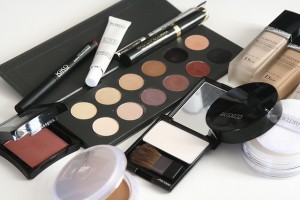Public Relations Pertaining to Lab Rabbits and Other Creatures

The beauty industry has seemingly taken over the world. Skincare and cosmetic industries have come a long way from humbly advertising Palmolive skin-softening soap to housewives across America in the Sunday newspaper. The rise and fame of content-creating beauty bloggers and vloggers (video-bloggers) in the past five years proves that these cosmetic and skincare companies are not the only voice publics listen to anymore. This is a curveball for public relations teams that represent these brands, as the perception of everyday consumers can easily influence the mass public. More women and men in the U.S. are buying a larger quantity of product than ever before thanks to the likes of influencers on social media.
Laws and Regulations
But what does this have to do with our furry friends and our public relations professionals? Where makeup and skincare products are manufactured and distributed will reveal the answer. Laws and regulations that note animal-testing requirements are typically unique to each geographic region and can range from the banning of animal testing altogether to mandated animal testing for any cosmetic or beauty product that is manufactured within or imported into that country.
The latter specifically points to countries like China, whose former law mandated animal testing on all cosmetics imported into the country, regardless of that company’s potential stance against subjecting animals to product-testing. In 2014, Chinese lawmakers updated the mandates to accommodate international companies that have either refused to sell in the country or have considered missing out on China’s flourishing market profits because of backlash from customers in the U.S., European Union and Canada. According to elephant-room.org, China’s new legislation dictates that products have to be tested on animals unless: they are imported from another country and purchased through online shops; the product is not available for sale in China; the product is sold in China but only in Hong Kong; or if the product is manufactured in China but not sold in the country.
Ethical Public Relations Dilemmas
Shifts in animal-testing laws pose substantial ethical dilemmas for public relations professionals, especially those working for companies that have historically been cruelty-free. First, teams must consider whether or not selling in countries with mandatory animal testing would harm their company’s relationship with publics and potential international market profits.
If the company chooses to sell in these countries the next issue public relations professionals must face is whether it is ethical to maintain a cruelty-free status in the U.S. while selling to countries that have mandatory animal-testing laws.
The step towards finding alternatives to mandated animal testing is giving hope to animal-lovers everywhere, but for many cosmetic companies and their publics, the move is not fast enough. Companies like Urban Decay Cosmetics, who’ve historically displayed commitment to animal rights and maintaining their cruelty-free status on leapingbunny.org , considered selling in China despite the initial strict laws. The internationally acclaimed cosmetic company decided to miss out on the profitable opportunity when a majority of its publics boycotted and protested Urban Decay China sales. Shortly after, Urban Decay’s public relations department submitted a notice to the public. The notice assured Urban Decay customers the company would not sell its product in China for ethical reasons, including a separation in China’s animal-testing laws and the cosmetic company’s core values. Urban Decay’s public relations team re-evaluated their previous agreement to sell the company’s products in China after speaking with customers, other cosmetic companies and organizations that showed interest in their initial resolve, according to an article on temptalia.com.
The central point the Urban Decay public relations team hoped to communicate to its publics through its decision is reflective of the PRSA Code of Ethics, which discusses the ethical responsibilities, commitments and acceptable conduct for public relations professionals. Urban Decay’s message specifically pointed to the company’s commitment to transparency with their customers, which according to the PRSA Code of Ethics, is done in order to “build trust with the public by avoiding or ending situations that put one’s personal or professional interests in conflict with society’s interests.” This commitment also matched the PRSA core principle of free flow of Information, which maintains that public relations professionals must “preserve the integrity of the process of communication” and “be honest and accurate in all communications.”
Urban Decay is one of many cruelty-free brands that struggled with the decision to maintain a cruelty-free label and miss out on profits from China versus submitting to new policy that would oppose their ethical stance against animal-testing. Cosmetic company L’Oreal currently maintains that it does not test on animals but doesn’t have a problem with other parties conducting animal testing as they see fit. While L’Oreal may not test on animals in the U.S., derivatives of the products’ ingredients come from companies who do and because they agree to sell in China, the majority of the products are, in fact, tested on animals. This raises another serious question for public relations professionals. Should a public relations team maintain its company’s cruelty-free claim to publics despite loop-holes through which their products are tested on animals in other markets?
There is a foreseeable steadiness in international demand for cosmetic products, as proof of growing subscriber numbers to various social media platforms, of all ages, ethnicities and geographic locations. Now that public relations teams for makeup and skincare companies are not the sole voices of influence for publics and consumers, the need for transparency and ethical decision-making has increased and will continue in this direction.
—
Lana Nasser is a senior public relations student at the University of Florida and a member of the Community Service Committee at the UF PRSSA Chapter. She spends her free time learning about skincare and cosmetic formulations and developments, writing and exploring the road less traveled. Subscribe to her blog, find her on LinkedIn and follow her on Twitter @NasserLana
